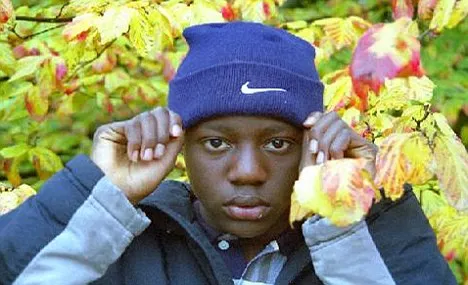By Abdullahi Inuwa
In the bustle of Lagos on December, 1986, a child was born named Umar Farouk Abdulmutallab, the youngest son of one of Nigeria’s most renown Banker and Minister in the Federal Republic of Nigeria. Young Abdulmutallab entered a world of wealth, status, and political influence.
He was a baby of sprawling household, the last among sixteen children, his father’s circle was one of global finance, business, and political corridors, while his mother’s Yemeni roots anchor day him in the old Islamic traditions of the Arabian Peninsula.
From the start, Farouk lived between two worlds: the modern prosperity of Nigeria’s elite and the austere devotion of deep religious faith.
A Childhood of Discipline and Faith
Unlike many privileged children in Lagos, Farouk was not known for mischief, excess, or rebellion. Those who grew up around him recall a boy who was quiet, dutiful, and deeply religious.
At the Rabiatu Mutallab Institute, a Qur’anic school founded by his family, teachers remembered him as the boy who prayed more often, fasted more strictly, and immersed himself more completely in scripture than his peers.
Neighbors described him as polite to a fault. He was shy, reserved, the child who never broke rules and rarely sought attention. While other boys chased footballs through the crowded streets of Lagos, Farouk seemed content with prayer mats, books, and a growing sense of religious responsibility.
“He was different,” one former classmate would later recall. “He seemed to be searching for something even then.”
The Burden of Expectation
Being the youngest son of a powerful patriarch came with both privilege and pressure. His father, Alhaji Umaru Mutallab, was a titan of Nigerian banking, a man who had served as a government minister and who sat on the boards of multinational corporations.
For his family, education was not optional; it was a calling. Farouk’s siblings spread across the globe—London, New York, Dubai—chasing degrees, business ventures, and careers that extended the Mutallab influence into international spheres.
Farouk, too, was expected to shine. His father’s wealth and stature opened doors to some of the best schools abroad. Yet Farouk was not merely another privileged Nigerian youth sent overseas to secure a polished Western education.
From an early age, he displayed a seriousness of faith that set him apart. His family’s comfort and opulence did not appear to tempt him; instead, he gravitated towards clerics, prayer, and online Islamic forums that offered him a sense of belonging.
Between Two Worlds
This duality—Western exposure and strict religious devotion—would come to define Farouk’s journey. In Lagos, he was the quiet son of a wealthy household. In school abroad, he became more withdrawn, more consumed by the tension between the life of privilege he was born into and the life of sacrifice and purity he idealized.
Unlike many of his peers who balanced western lifestyles with cultural roots, Farouk seemed to struggle with reconciliation. Reports suggested that during his studies, he began expressing discomfort with the perceived contradictions between faith and modernity.
In his solitude, he turned increasingly to online communities where radical voices were quick to exploit such doubts.
Seeds of Isolation
What makes Farouk’s story striking within online sources and statutory publications is not just the path he eventually chose, but the contrast to the path available to him. Here was a young man who had every opportunity for comfort, success, and global prestige.
Yet, the discipline and strictness of his childhood laid the foundation for a life lived in absolutes—right and wrong, pure and impure, faith and betrayal.
Teachers who once praised his devotion began to worry about his rigidity. While his peers could bend rules or laugh at harmless mischief, Farouk saw such behavior as weakness.
His idealism, once admired, hardened into a kind of intolerance. What began as quiet piety in the prayer halls of Lagos deepened into a worldview where compromise was no longer possible.
The Making of a Paradox
The paradox of Umar Farouk Abdulmutallab’s early years lies in the collision of privilege and piety. The Lagos mansion, the chauffeur-driven cars, and the elite education all stood alongside the boy’s unwavering dedication to faith. To his family, he was the obedient child. To his teachers, the model student. To his neighbors, the polite boy who kept to himself.
Yet within him was an unspoken conflict: how to live authentically as both the son of privilege and the servant of a faith that demanded humility and sacrifice. This conflict, left unresolved, grew as he matured. And like many who find themselves caught between two worlds, Farouk sought resolution in extremes.
A Story That Echoes through the statutory media outlets and online sources.
Today, Umar Farouk Abdulmutallab’s name is remembered for what he would later become: the so-called “Underwear Bomber,” whose failed attempt at mass murder on a U.S.-bound flight in 2009 shocked the world. But before the headlines, before the notoriety, there was a boy in Lagos whose quiet devotion masked a growing storm.
His story forces uncomfortable questions: How does a child born into comfort and influence turn towards destruction? How does devotion transform into radicalization? And what role does isolation play in shaping a mind already predisposed to extremes?
In the end, the tale of Farouk’s early life is not just about one boy in Lagos. It is a cautionary tale about the fragile balance between privilege and identity, faith and fanaticism, belonging and isolation.
For behind the notorious man was once a quiet child, bowing his head in prayer, searching for meaning in a world that had already offered him everything.
Abdullahi Inuwa Social Commentator ainuwa303@gmail.com




